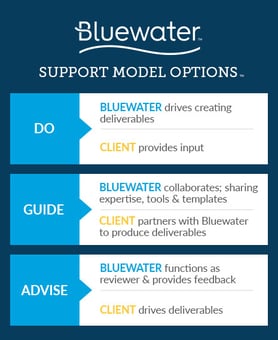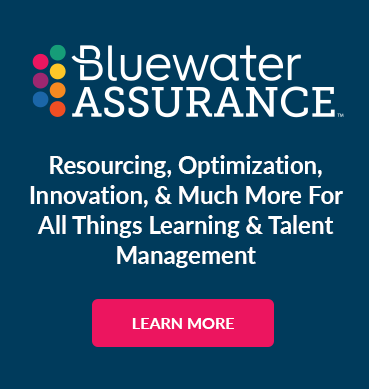Rules of Engagement: Hiring an LMS Consultant
by Chris Bond | March 27, 2019 05:45 AM | Shark Bites - Cornerstone Edition

I am working with a client that has had their current learning system for about 3 years. It worked pretty well for them initially, but the system operations and the user experience have gotten progressively worse over time to the point that some significant work has to be done. They are enthusiastic about the new direction they want to take but they have two problems. One, they lack the specialized experience needed to overhaul their system and processes. Two, they have day jobs already, so they don’t have the needed resources to do the work.
This is an obvious situation where hiring the right consultant is the best approach. Why?
Your business can’t be good at everything.
That’s why many companies outsource payroll operations – it lets them focus on providing value to their customers.
Many companies believe that adding new hires with the right knowledge is the best approach to bridging these resource gaps because it saves the cost of the consulting. In actuality, this approach takes longer and ultimately costs more. It takes time and money to recruit knowledgeable candidates, onboard them to your company, and ramp them up to speed on the project before the work can finally begin.
It’s also important to know that knowledge and experience are two different things. A strong candidate may have led their team through a similar project in a previous role. A strong consultant may have led teams through a similar project hundreds of times and can bring the successes and pitfalls of each one to the table.
When you search for a consultant to help you, there are four basic questions you need to ask yourself.
- Do I need to accomplish a specific project, or do I need a long-term partnership to help make improvements?
- Who has the expertise and experience needed to help? What is their reputation?
- Can I trust them to always have my best interests in mind?
- Will they deliver actual results?
Once you’ve answered those questions, the next thing to figure out is how to use your consulting engagement.
There are 3 ways a consulting engagement can help you.
Do – The consultant takes you through a process of discovery, makes a set of recommendations using best practices, and then executes the recommendations you agree upon.
Guide – The consultant takes you through the discovery process, educates you on best practices, makes a set of recommendations, and enables you to execute the recommendations in partnership with the consultant.
Advise – The consultant educates you on best practices, and provides tools and templates needed for you to develop your own recommendations and execute the recommendations you create.
The right model for you is determined by the experience and resources you have available to make the needed changes. We find that many clients make the determination based on cost rather than on the value of the improvement to the organization, which can lead to bad results down the road. How can you avoid choosing the wrong model?
Tips for getting the most out of your consulting engagement
- Focus on outcomes – A good consultant will start with the business results that you need to achieve. This could be things like increased sales, reducing excessive turnover, or reducing the time of your new hire onboarding process
- Understand the consulting process and your role in each of the steps
- Be honest about areas you need help
If you want to maximize your learning or talent system or have any questions on how to make the most out of your consulting engagement, feel free to contact us.
Search Our Blogs
Categories
- Ad Hoc
- ADMIN
- administration
- AI
- analytics
- anxiety
- Artificial intelligence
- automation
- BI
- blog
- Blueprint
- center of excellence
- Communication
- COVID-19
- Culture
- Custom Content
- customer service
- Data
- Employee Engagement
- Shark Bites - Cornerstone Edition
- Shark Bites - SumTotal Edition
- Shark Bites - Ultimate Edition
- The Future of Learning
- The Future of Talent Management
- User Experience
- UX
- wellbeing


